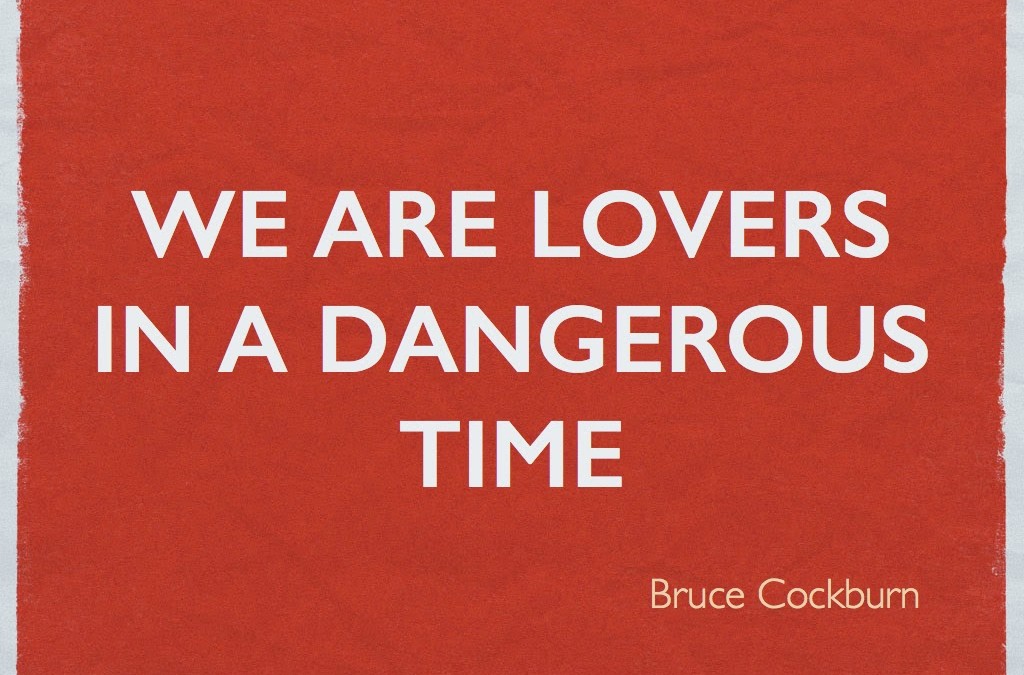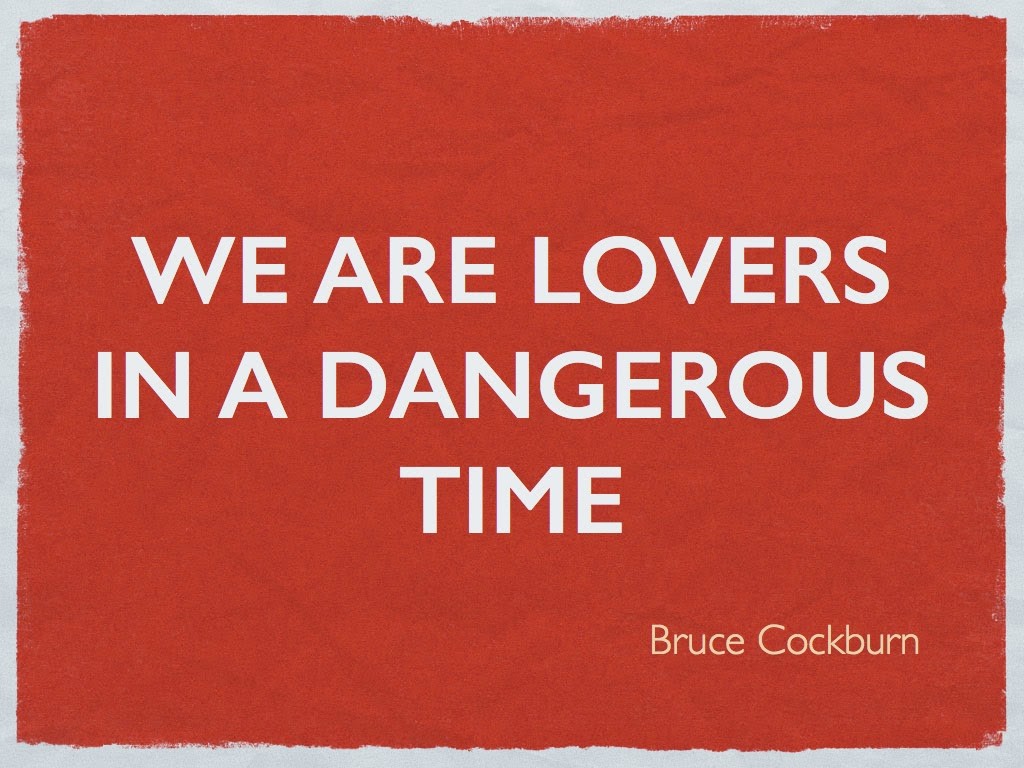
by Jonathan Manafo | Oct 14, 2014 | Sunday Conversations
It feels like there’s always some kind of voice coming at me at any given minute of every day. Think about this: we watch shows and listen to the news, we scroll our twitter and facebook feeds, we have a variety of friends with a variety of opinions, and we have all the important people in our lives feeding us information. None of these are bad of course. They are what they are. Hopefully, in your case, the people close to you are also voices that encourage, challenge and build you up.
We learn by and are shaped from all the voices in our lives. I think back to by university days and remember the excitement of picking up my assigned books. I would have that initial impression about which book I’d like and which one would be a struggle; which book would have an impact and which book may not. I cherish these books, which you would quickly find out when you see most of them still on the shelves around my office and home.
David, known as King, Prophet and Poet, wrote a number of Psalms, which we read today for inspiration, comfort, a reality check and of course, theology. One of those Psalms is number 19 in the Psalter. It’s a real beauty. One that C.S, Lewis said is the most poetic of all of them, and the best lyrics he’s come across…in the world. An old preacher named Charles Spurgeon said that this psalm was inspired by David’s two favourite books: the book called nature and the book called scripture. From these two books, David formed his theology, his thoughts on God, his worldview. We could say that these were the voices that shaped him.

The first book is non-lyrical. Nature doesn’t need words to speak – creation needs no words to say something. David of course felt and knew this deeply. He allowed the voice of God to shape him through creation. The example he gives in Psalm 19 is none other than the sun. It comes up and goes down, without us making it happen. Everything in our home and in our lives works, moves, functions, because in some way we give it fuel; our cars, our furnaces, our lights, our AC, etc. If we don’t work and make money to pay these bills, all those things will cease to work for us. But the Sun…the Sun…it comes up in the morning, warms us all day, and sets at night, and there is nothing we did to make that happen. Not one thing. This is mind blowing for David…and should be for us as well.
I want to allow that voice in my life; the voice of God’s creation; the words from Nature’s book, that God so eloquently wrote, inspire, shape and mould me.
But there is another book David equally appreciates. He would refer to it as God’s law or precepts or commands. We can call this scripture. David knows that this voice from God, not only has words, but it balances the other voice, the other book (nature). He says that he loves these words from God more than the most precious of gold. David, being a King, had access to what other people didn’t have access to, the best gold he could get his hands on. Yet, he would choose God’s words over this gold every time. Think about your most prized possession or your most valuable asset? David would say that God’s voice in his life, through scripture, is more important, more precious to him than that. Would I? Could I?
Here’s the question for us: what voice is narrating our story? What voice are we allowing to shape us most? There are lots to choose from.
In Genesis, after Adam and Eve sinned, an interesting thing happens, they realize that they are naked. Until then, naked was normal. God shows up and asks, “Who told you that you were naked?” It’s like God said, “Who’s voice have you begun to listen to? And when did my voice become secondary?”
Erwin McMannus (The Artisan Soul) says, “what informs us ‘forms’ us…we must decide what voice will define us and what story we choose to be in – which narrative will guide”.
Psalm 19 is a reminder that David, an honourable King, yet an ordinary man, chose to let God’s voice shape his worldview. He was able to see and hear God in Nature (creation) and in Scripture (words). Together, they were his textbook on discovering God. It’s a good example to follow, with an added New Testament understanding of being part of (a church) community.
Let’s long for God’s voice in the same way, so his words (the audible and non-audible) take precedent and are the ones that shape our lives…today.

by Jonathan Manafo | Oct 8, 2014 | Sunday Conversations
One of the most profound, but possibly arrogant things Jesus ever said is found in John14. Many people, Christian or not, know this mind boggling statement. Much of Christian Theology is based on it. Some people find it affirming and comforting, others may find it arrogant and exclusive. When you really think about it, the statement is off the wall. To think that someone would say such a thing about them self and expect people to believe it. No wonder they wanted to kill him.
The words we’re talking about are found in John 14:6. Jesus says that he is ‘The Way, the Truth and the Life’ and that no one goes to the Father except through him. Those are some lofty words. By this point in Jesus life, he had revealed who he was, God’s Son, God in the flesh. He had said and done things that left people with a choice: he’s either a nut case or a he’s the real deal? CS Lewis said that Jesus was either a lunatic, a liar, a legend or…he was actually Lord.
Jesus words in John 14 can truly stand alone. However, words in scripture never do. By that we mean they are always found in a larger text, and we understand them fully in that text.
John 14 starts with Jesus trying to comfort his disciples. In the previous chapter, Jesus begins to let them in on some important info: he’s on his way out. Jesus lets his closest followers know that his time on earth is coming to an end, and they don’t like it one bit. Actually they are quite confused and want some clarity, mainly, where is Jesus going and how can they get there? This is why the first words of John 14 are, “Don’t let your hearts be troubled”. Jesus is comforting his disciples, he does that by reminding them about a few important things.
Jesus is working for them
“My Father’s house has many rooms; if that were not so, would I have told you that I am going to prepare a place for you?” (John 14:2)
The first piece of info Jesus uses to comfort his disciples is to confirm that he is in fact working for them and has always been planning and plodding to ensure that they would be where he will be. The term ‘Father’s House’ was only used one other time in John’s gospel (ch. 2) and is in reference to the temple, which historically was the place where Heaven & Earth meet. When Jesus says he’s preparing a place, it’s a metaphor for a space that will bring to fruition God’s presence and our world becoming one. It’s a place where our prayer for his Kingdom to come on earth as it is in heaven is realized.
My friends have a cottage that I just think is beautiful. It was tough to navigate how to get there, but once we arrived we saw workmanship that you don’t see in too many cottages. My friend’s Dad is the one who built every part of that cottage. From the log walls to the hand picked wooden branch railings. Every part of that home communicates one big idea, “I love my family and I want this place to represent how much we long spending time together”. That folks is what Jesus is communicating to his disciples.
Jesus is the Way
The disciples needed a little more convincing. It’s almost as if they’re saying, ‘thanks for painting a beautiful picture of your plans for us, but how in the world are we going to find it?’
This is where Jesus famous words come in. He says that all they need to do is look to him, because he is the way…to the Father…and there’s no other way. Remember, these words are to aid Jesus’ purpose at the beginning of John 14. He wants to encourage his disciples and settle their hearts. Giving them direction and destination eases their fears about how in the world they are going to find him once he leaves.
These words from Jesus have been seen as arrogant and confusing. Some have wondered how Jesus could be so exclusive and say that he is the only way to God. I can understand why some would feel this way, however, when you think about it, how many ways do you really think can get you to God. If we think that every way gets you there, then no way will get you there.
And think about this: what are the ‘ways’ Jesus shows us his relationship to the Father’s heart? It’s how he lived, how he treated people, how he died for the world. His ways include…
– washing people’s feet
– treating woman & children with dignity (in an era that treated them inhumanely)
– extending wedding parties with vintage wine
– turning the other cheek and extending peace instead of violence
– weeping for his friends, healing lepers, sharing a drink with sinners
That’s not arrogant or self- serving; it’s the opposite!
If those are Jesus’ ways, then I want that way too – I want his way – I want to follow Jesus.
Jesus is God
What’s very important here is how many times in the gospels Jesus tells us that when we are looking at him we are looking at God. He tells Philip in John 14, “when you see me, you’ve see the Father.” What makes Jesus’ statement about being the way, both more valid and more outrageous is that he actually tells us that he is God. We see God clearly when we look at and look to Jesus.
Paul helps us with this through his words in Colossians 1. “The Son is the image of the invisible God, the first born of all creation. For in him all things were created…He is before all things, and in him all things hold together.”
Jesus is more than a road on a map, he is the map. He’s more than a car on the road, he’s a tour bus that brings us all with him.
Jesus invites them to participate in his mission
The last part of this text might be the most puzzling and yet most exciting. Jesus says that we will do what he did…and even greater. Again, these words are supposed to be comfort to some confused disciples. Comforting words normally include rest and relaxation, instead Jesus invites us to work, to serve, to do the same kind of Kingdom things that he himself did. We see lots of this happening in the first few chapters of Acts.
The beauty of this is that we’re invited on this journey, not alone, but in community. We call that the church.
we are a JESUS community
Let’s look back. Over the last few posts we’ve tried to define what it means to be us, and by us I mean the church community we call The Village. We’ve said that we are a learning community; one who discovers the gospel together. We’ve said that we’re a living community; one that not only hears the words of Jesus, but attempts to actually live them. We’ve said that we’re a loving community; one that loves like Jesus and loves because of Jesus. Lastly, and most importantly, we are a Jesus community. He is at the centre of our faith. If we were to look at our faith like we look through a camera, Jesus would be the focal point and everything else falls into place in the peripheral.
In John 6, some people weren’t so sure if following Jesus was all it was cracked up to be. These people started to walk away from him. As they do, Jesus turns to his disciples and says, ‘how about you, do you want to go too?’ They respond with this, “Lord, where are we going to go, you have the words of eternal life”.
Once Jesus’ words hit us, once the gospel really sinks in, once we realize that Jesus is the way, the truth and the life – we really can’t go anywhere else. He’s ruined us. In a good way. Because we know that through him, we have relationship with God, now and forever.
– – – – – – – – – – – – – – – – – – – – – – – – – – – – – – – – – – – – –
small(er) group questions:
What about Jesus? What words do you use to describe him? What do you think about his profound statement: that he’s the WAY, TRUTH, LIFE?
Why would Jesus’ disciples need comforting? Can we compare our faith experience with theirs? Do we need pats on the back in our faith journey?
If Jesus’ words are true, and he is preparing a place for us, how does that impact me today? How do his plans for my future effect my life in the present? How do you feel Jesus is working ‘for’ you? (John 14:1-3)
Is Jesus outrageous statement in John 14:6 arrogant or loving? Is it hard to believe or a welcomed truth? What do you think?
How do you think his words encouraged the disciples? Do they do the same for us?
How does Colossians 1:15 & John 14 work together?
What could we possibly do that is equal or greater to what Jesus did? (John 14:12)
We are a learning, living and loving community. More than that…the central element…is that we are a JESUS community. Why is this so essential?
(Our learning, living and loving is all based on Jesus and his message.)
(Try going back and re-answering the first question)

by Jonathan Manafo | Oct 1, 2014 | Sunday Conversations
The great philosophers of 60s & 70s once said, “All you need is love”. They also once sang to their significant others these lofty words, “8 days a week, I lo-o-o-o-o-ove you”. Imagine having so much love for someone that 7 days in a week wouldn’t be enough to express your love?
Bruce Cockburn and the Bare Naked Ladies tell us that ‘we are lovers of a dangerous time’. Ain’t that the truth. Our banjo strumming, foot stomping sons of mumford sing these words with their scratchy voices, ‘where you invest your love, you invest your life’.
And Bill Murray’s fake twitter account posted, ‘they say that love is more important than money, but have you ever tried paying your bills with a hug?’
Where are we going with all this?
In our last few posts we’ve been trying unpack who WE ARE…as a church community, as followers of Jesus, as people who are discovering what it means to Love God & Others.
We’ve said that we want/need to be a learning community and a living community. In this third edition we remind ourselves that we are called to be a loving community.
In Colossians, Paul includes a beautiful metaphor around the theme of clothing – what people of God are wearing. We’re challenged to put on kindness, compassion, humility, patience, and so on. These are very closely tied to the fruit of the Spirit we talked about in our last post. Out of all these clothes, Paul says that Love is the overcoat. This overcoat both keeps our wardrobe together and helps the other pieces of clothing shine. Love is the part of the equation we just can’t leave out. NT Wright puts it like this, “It is interesting how all roads lead back to love…the greatest of the virtues, the first fruit of the Spirit – even the pagan moralists note it as the primary thing which sets Christianity apart.”
If there’s one thing that defines the Christian Faith, it’s love. One thing sets apart the follower of Jesus, that’s love. Here’s why…
GOD is LOVE
Often times we look for some kind of love or higher energy in all the wrong places. We think only teenagers have this issue, but adults are human beings who long for something bigger and better in their lives. If we just look for love, we may or may not find God, but if we look to God, we will definitely find Love.
In 1 John 4 we read words like, “love comes from God…God showed his love among us…love is God sending his son to us…we know and rely on the love God has for us…GOD IS LOVE.”
Notice the writer doesn’t say this the other way around, that love is God. Instead he insists that God is Love!
We don’t want to get stuck on a flicker of love, when we can have it all in God, through Jesus.
we LOVE one another
As we’ve been reading through John 15 and 1 John 4, I hope we can see that the purpose for this love is two-fold: that we know God’s love and that we can in turn love one another.
“Dear friends, since God so loved us, we also ought to love one another…anyone who loves God must love their sister or brother.” (1 John 4)
“I’m giving you these commands so that you may love one another.” (John 15)
Love is the ultimate evidence that you are a follower of Jesus. And this love starts where you are – with the people closest to you. The NT expresses how much the early followers of Jesus loved one another. Before we get skeptical and wonder why the love is being focused inward (more to come), let’s appreciate that if we can’t love those who are closest to us (i.e. our family, our church community) then we’ll have a much harder time loving those outside our intimate circles.
That said, we know that Jesus doesn’t stop there. God’s love is too big to put a lid on it.
we LOVE the unlovable
What distinguishes us as followers of Jesus is…
– Not (just) that we love our family or those in our church community
– Not (just) that we love those who treat us well
– Not (just) that we love those who bless us
– Not (just) that we love those who look good, smell good and love us back
It’s our love for the unlovable that will set us apart.
Jesus says (Matthew 5), “Love your enemies and pray for those who persecute you, that you may be children of your Father in Heaven…if you love those who love you, what reward will you get? Are not even tax collectors doing that?”
What really defines us is our love for the unlovable, the outcast, the poor, the hurting, the ones who are ‘different’. That’s what makes the difference.
We’ve been asking this question a lot lately, ‘What do we want to be known for?’ I hope in the end it’s for this one thing – How we love, who we love, and under what circumstances we love.
Jesus said, “by this everyone will know that you are my disciples, if you love one another” (John 13:35)
“Where you invest your love, you invest your life” (Mumford and Sons)
– – – – – – – – – – – – – – – – – – – – – – – – – – – –
(small group questions)
We know that love is beautiful. But it is often described as dangerous, risky and unpredictable. Why?
What comes to mind after reading this quote, ““It is interesting how all roads lead back to love…the greatest of the virtues, the first fruit of the Spirit – it is noted as the primary thing which sets Christianity apart.”
(helpful text: Colossians 3:14)
In 1 John 4 we read words like, “love comes from God…God showed his love among us…love is God sending his son to us…we know and rely on the love God has for us…GOD IS LOVE.”
– Why is it important to affirm that God is love, and not (simply) that love is God? Is there a difference?
Jesus leaves us a few ‘nonnegotiables’. Loving one another is one of them. According to this…
“Dear friends, since God so loved us, we also ought to love one another…anyone who loves God must love their sister or brother.” (1 John 4)
…what is our love based out of…what inspires and compels it?
For some it’s easier to love the people we don’t know – the ones who we go out of our way to serve – why? Who should get our first fruits of love?
Loving the unlovable is what defines a follower of Jesus. How do Jesus words in Matthew 5 make you feel? “Love your enemies and pray for those who persecute you, that you may be children of your Father in Heaven…if you love those who love you, what reward will you get? Are not even tax collectors doing that?”
How are Jesus’ and M&S’s words the same?
“by this everyone will know that you are my disciples, if you love one another” (John 13)
“Where you invest your love, you invest your life” (Mumford & Sons)

by Jonathan Manafo | Sep 24, 2014 | Sunday Conversations
Before twitter and FB profiles, people’s titles were pretty bland. Manager of HR, IT director, Head Tech, Doctor, Driver, Pastor, etc. Titles don’t begin to really tell the story do they? Barista doesn’t say much about someone’s life and character, only what they get paid to do. Even names don’t say much about you. We know that names have historical meaning, but in reality we bring meaning & purpose to our names.
If I were to give myself some extra profile or work related names I’d say that I’m…
– an architect of community engagement
– a designer of authentic and truthful conversations
– discovering the art of neighbouring
Some of my friends got creative…
– Ambassador of Hope, CEO of Inspiration (
Mike Crofts on his emails)
– Bringer of laughter and joy (
Joey Fletcher on his twitter page)
How would you describe a (our) church community, The Village? Some of you may know or remember this; before we launched and went public, we were known as _______ Church. Why? One, because we were figuring out who we were and who we wanted to be, and two, we had a feeling that no matter what we called ourselves, it would be how we lived, acted, worshiped, served, that would truly define who we were. A name on a sign doesn’t begin to tell the whole story. What we know for sure is that we are becoming a community of people who love God, love our neighbours, and make the world better. So we hope that people fill in the ________ with words like, hospitable, welcoming, loving, patient, foodies :), and other words like godly, Jesus followers, peace makers, etc.
In our
first instalment of this series, we started by saying WE ARE a LEARNING community. This is based on many places in the NT where we see followers of Jesus and subsequently, the early church, devote themselves to teaching. They were learners of the gospel message; discoverers of truth in Jesus; investigators of God’s Kingdom through the life and teaching of Jesus. But it can’t stop there.
If we are only learners of the gospel, but never get around to living out our discoveries of truth, we are learning in vain. This is why James says in his NT letter (1:22),
Don’t just listen to the word and do nothing about it, Act on what you hear.
Henri Nouwen encourages us to live our way into a new way of thinking. NT Wright says that followers of Jesus should practice the art of living as good citizens…living (like) Jesus in public.
But what does that mean? How does that play out? What kind of lives are we called to live, collectively and individually?
Here are a few things the Bible shows us – a few ways that our lives can and must reflect the faith we have in Jesus:
Lives defined by LIGHT
In Ephesians 5:8, Paul says something about Christ followers that is very important. He talks about what they ‘were’ compared who the ‘are’. He says that once their life was in darkness, but now it is light. And then he says, ‘Live as children of the light’.
It’s hard to see darkness inside of you. It’s tough to identify what needs fixing. One thing we know, Jesus makes dark things light; he makes broken things whole. Our lives as followers of Jesus can and must be represented by light. John says something similar in his short letter (1 John 1:5). “God is light, in him there is no darkness…walk in the light as he is in the light.”
Lives exemplified by FRUIT
Both Jesus and Paul refer to our new lives as fruit bearing. If we are connected to the vine, and we are branches, then we are bound to bear fruit (John 15). This theme continues when Paul talks about the fruit of the spirit. He says that our lives bear fruit like love, joy, peace, gentleness, kindness, etc.
Of course Jesus words in Matthew 7 might be the most pointed. He says that we will be known by our fruit – known by what comes out of us. This of course can go one way or the another. Healthy trees grow healthy fruit, unhealthy trees grow…well, you get the picture.
I want to be known for things that make a difference, things that change the world, things that reflect the character of Jesus.
Lives dripping with HUMILITY
The character of Jesus has always been closely related to humility. You can have all the good fruit you want, but if it’s served with a hint of arrogance, I guarantee you it won’t taste good at all.
James says (3:13) “Are any of you wise or sensible? Show it by living right and being humble…”
When Paul challenges us to be like Jesus in Philippians 2, he refers to the humility that drips from who Jesus is.
And way back during the time of the prophets, Micah (6:8) answers the question, God what do you want from me, by saying three simple things: act justly, love mercy, walk humbly with God.
Eugene Peterson paraphrases humility like this, “Don’t take yourself too seriously – take God seriously”
When asked the question again, what does it mean to live out our faith in Jesus, these 3 things sums it up pretty well: Be Light – Be Fruitful – Be Humble! Are these the things people see in you, in us, in our church community? I hope so. Better question might be this: Is who we are, slowly, but surely, beginning to match up with who we want to become?
– – – – – – – – – – – – – – – – – – – – – – – – – – – – – – – – – – – – – – –
(small group questions)
What kind of creative (job or non-job) title would you like others to know you by? Could you come up with one? If not a title, what’s one word that could define you?
James 1:22 says, Don’t just listen to the word and do nothing about it, Act on what you hear. What do you think about that? In light of that verse what do you think of this statement, If we are only learners of the gospel, but never get around to living out our discoveries of truth, we are learning in vain? Or this one, followers of Jesus should practice the art of living as good citizens…living (like) Jesus in public?
The Bible says that we should live as children of the Light. (Eph 5:18) How?
Jesus said we would be known by our fruit & Paul says that we can have the fruit of the Spirit? Is that evident in us…a little or enough? Is that fruit simply another way of saying that we can look and live like Jesus? What can we do to see these fruits growing in us?
Both James (NT) & Micah (OT) encourage us not to take ourselves too seriously, but to take God seriously. This has to do with humility. Why do we love humble people? What is attractive about it? How can it enhance all our other good and godly gifts and character traits?
Live Well!

by Jonathan Manafo | Sep 16, 2014 | Sunday Conversations
(This past Sunday at The Village we started a 4 part series that will kickstart our fall season)
September is a great time to hit the reset or refresh button. We tend to look for reasons to do that, mainly because it’s very easy to get out of sync. For example, this summer I definitely got out of alignment in how, when and what I ate. Guess what, this fall it shows. Some people have winter tires, I’m making a splash with a summer tire. (now I have until Christmas to lose it before the winter one arrives)
Over the next 4 posts you’ll get a sense of re-alignment, re-prioritizing, maybe a little rebooting too. When we think about what kind of church community we want to be, a number of things come to mind: Loving, Caring, Honest, Welcoming, Spiritual, Creative, Jesus focused, spirit led, and the list goes on. At The Village we’ve chosen to highlight 3 words: Discovery, Story & Community. We feel that they cover a wide enough spectrum and they communicate much of who we want to be and what we want be known for.
Since we talk about these words often, I thought we could look at things from a difference angle and perhaps use some other words to add to the ones we already appreciate so much. If someone journeyed with The Village for a few weeks, what would they say about us? How would they define us? What words would they use to communicate their experience. I hope that they would at least say this about us – That WE ARE…
– a learning community
– a living community
– a loving community
– a Jesus community

What is important about being a learning community? Why does that word come into play for a church community? Well, if we hope that others discover God with us and us with them, there’s bound to be lots of learning going on. The discovery process is a beautiful thing – in it we are becoming more and more aligned with the ways of Jesus. God invites us on a journey to discover him. The scriptures are really about people who are figuring out (learning) why it’s better to follow God than anything else and that Jesus is the God we can follow. This happens through teaching, various forms of teaching: often times with words, many times through example and metaphor. The word teach or teaching is found well over 100 times in the scripture, mainly in the NT. The earliest church communities fed on and grew from the teaching of Jesus and subsequently, the apostles. If you wonder why teaching takes up more than a 1/3 of Sunday church gathering, it’s because through the teaching of scripture that the church has grown to what it is at today.
Think about this. We’ve been (both the church and the rest of the world) talking about Jesus for over 2000 years. Who gets that kind of longevity? Artists are lucky if their music or literature is even talked about 1 year after release. In our twitter/FB world, most posts don’t get a second glance. Jesus’ words, his compelling message about peace, love, grace and the kingdom of God, has been getting around for a very long time. As an old school gospel preacher might say, ‘this stuff will preach’!
So how does a church community continue to grow and become all that God would have it to be? By being a place where learning is valued, where questions are appreciated, where answers are looked for, where discovery is essential, both by the veteran follower of Jesus and the one who’s taking their first steps. We want to be a learning community. Not just any kind, but a safe kind. The kind where anyone and everyone who wants to discover Jesus, feels like they can do so at their own pace.
King David, in a Psalm full of both affirming thoughts about God and questions about His ways, says this, “teach me your ways oh Lord, that I may walk in your truth” (Psalm 86:11). There’s no better way to approach our faith journey that this. Let’s break it down:
Teach me (teach me what) your ways (who’s ways) Oh Lord (what do I do with his ways) so that I may walk (so learning his ways helps me live/walk, but how, in what way) in your truth (got it).

Jesus, when describing our relationship to him and to the Father uses the metaphor of a tree (vine), a branch and fruit (John15). He invites us to be connected to him (the vine) so that we (the branches) can grow and (eventually) bear fruit. We learn (grow, discover, become) by being connected to him. Jesus is the teacher who we listen to and watch. If you’ve ever grown anything, from flowers to vegetables, you’ve noticed that nothing grows to full form over night. We take for granted the goodness of fruit or the health of a strong tree. In a church community, you will have different people at different stages of faith; from veterans to newbies, from people who aren’t phased by anything to those who really struggle with doubt. Learning communities value everyone – we appreciate those who are asking all the questions and those who now have a few more answers than they did at first. John 15 teaches not only to be connected to Jesus, but to also appreciate all the branches that are growing out of the vine, and then to nurture the learning process so the fruit grows well and is spread around to make the world better.
Let’s be a learning community who listens and watches (Proverbs 18:13, 19:27, Luke 5:1, 2 Timothy 1:3), who follows and acts (James 1:22), who discovers God in fresh ways, and who stays connected (John 15:5) to Jesus, the vine. This will benefit everyone who calls The Village home (insert your own local church community here if you will) and it will benefit anyone willing to take a risk and begin a journey, so they too can discover God with us.
WE ARE…a learning community…
– – – – – – – – – – – – – – – – – – – – – – – – – – – – – – – – – – – – – – – – – – – – – – – – – – – – – – – – – – – – – – – – – – – – – –
small group notes : fall season-2014 (#1)
Do you think people participate in a church community to learn? If so, why? If not, what scares people about that idea or word?
Do we think that characters (people) in the scripture stories had it all together or that they were learning/discovery more about God everyday? You think they were figuring things out too?
The church has been teaching and talking about Jesus for a very long time? What is so fascinating about his message or story that has kept this tradition alive for so long?
How can our learning stay fresh? How should our learning environment be safe? What’s your favourite part of a Sunday gathering: worship, coffee break, teaching, other? (be honest)
Here’s Psalm 86:11 expanded…
Teach me (teach me what) your ways (who’s ways) Oh Lord (what do I do with his ways) so that I may walk (so learning his ways helps me live/walk, but how, in what way) in your truth (got it).
What do you think of it? How can this verse shape the way we approach God’s word and ways?
Jesus uses the metaphor of (he being the) vine and (us being) branches in John 15:5. How do these words relate to learning or discovering the gospel story?
We’re going to look at James 1:22 next week. If you have time, feel free to read it once before we close the night. If you really have time, you can talk about it a little too.
















